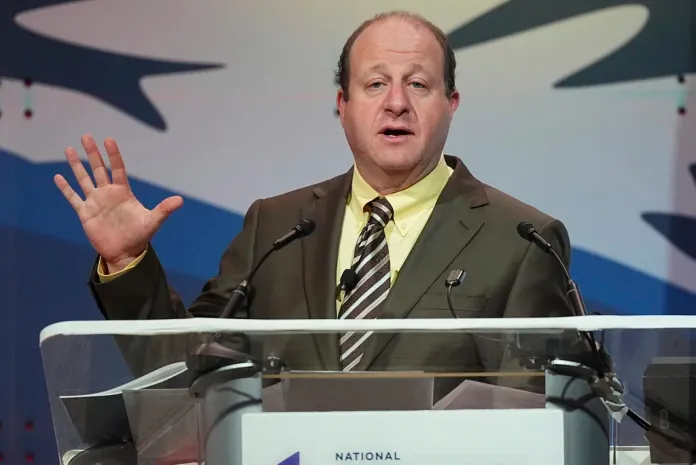Polis calls for return of Victims of Crime Act grant funding
the article reports that Colorado Governor Jared Polis is urging the federal government to restore grant funding from the Victims of Crime Act (VOCA), which has been restricted by the Trump administration. The withheld funds, totaling over a billion dollars already approved by Congress, are conditioned on states supporting federal immigration enforcement policies.Colorado, along with 19 other states, has filed a lawsuit opposing these unprecedented conditions, arguing thay politicize support for crime victims and endanger public safety. VOCA grants, administered by the Department of Justice since 1984, provide critical services such as victim advocacy, emergency shelter, forensic exams, and financial assistance for victims. In 2024, Colorado received over $21 million from VOCA to support such services. Governor Polis and Colorado House Majority Leader Monica Duran emphasize that these funds are vital for helping survivors recover and condemn the political use of victims in immigration disputes. Colorado’s sanctuary city policies, especially in Denver, have placed the state on a federal list of jurisdictions deemed to impede immigration enforcement, which is tied to the funding restrictions. the state pledges to continue fighting to restore VOCA funding and protect resources for crime victims.
Polis calls for return of Victims of Crime Act grant funding
(The Center Square) – Colorado Gov. Jared Polis is calling for the Trump administration to end restrictions it has put on Victims of Crime Act grants.
The funding in jeopardy, which has already been appropriated by Congress, totals more than a billion dollars.
“Coloradans know that politicizing support for crime victims is wrong,” Polis said. “The Trump administration’s decision to withhold these funds is cruel and makes our communities less safe.”
The U.S. Justice Department has declared that states will not be able to access Victims of Crime Act funding unless they agree to support the administration’s immigration enforcement.
Colorado is one of 20 states that have joined together in suing over these restrictions on the funding, calling it in their lawsuit “unprecedented conditions.”
The Victims of Crime Act was first enacted in 1984. Administered by the U.S. Department of Justice, the grants help fund a wide variety of programs including victim and witness advocacy services, emergency shelter, crime scene cleanup, sexual assault forensic exams, and medical, funeral and burial expenses.
In 2024, Colorado’s Office for Victims Programs received over $21 million in funding from Victims of Crime Acts grants. Funding is distributed to states based on fixed statutory formulas.
Polis said Colorado will continue to fight for the restoration of the funding.
“This federal funding should go toward helping survivors heal and get a fresh start,” Polis said. “Colorado will stand up for survivors and fight to ensure that every victim has access to the resources needed to recover.”
Colorado House Majority Leader Monica Duran, D-Wheat Ridge, joined Polis in pushing back.
“As a domestic violence survivor, I know how life-saving these services are,” Duran said. “For Colorado families in crisis, VOCA funds mean having a safe place to sleep, access to counseling, or support navigating the justice system. It is unconscionable to use survivors as pawns in a political fight over immigration.”
She added that the Colorado legislature will work to protect services from being impacted by this federal funding pause.
Under the Trump administration’s conditions, to continue receiving the funding, Colorado must comply with immigration efforts by the U.S. Department of Homeland Security.
Currently Colorado and its capital city Denver have been under scrutiny for their so-called sanctuary city policies, which limits their cooperation with federal immigration authorities.
CRIME IN US CITIES AS TRUMP AIMS TO EXPAND CRACKDOWN: LATEST COVERAGE
The U.S. Department of Justice recently released a list of “states, cities, and counties identified as having policies, laws, or regulations that impede enforcement of federal immigration laws.”
Colorado and Denver were both on that list.
" Conservative News Daily does not always share or support the views and opinions expressed here; they are just those of the writer."




